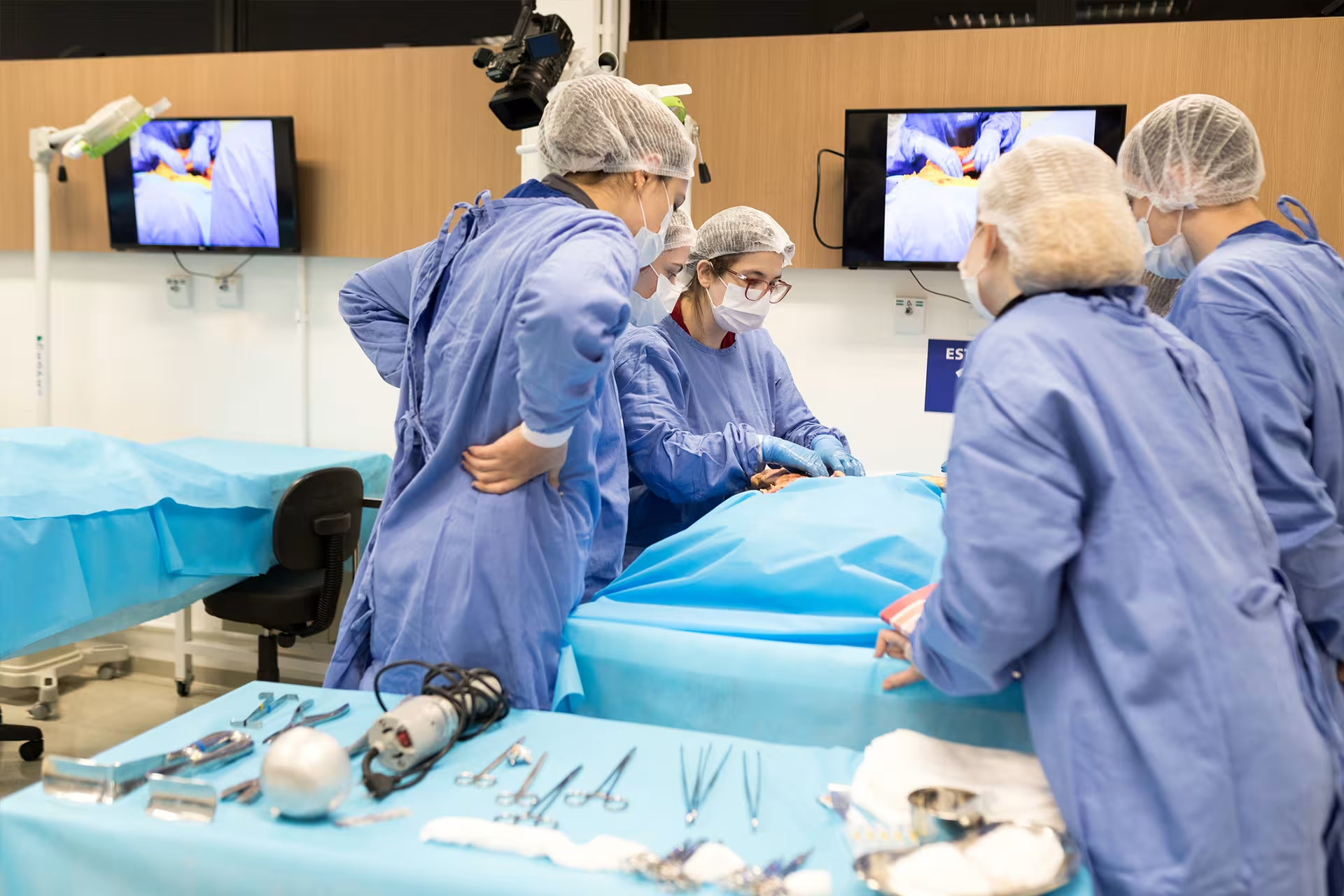


If you are looking to take on a career as an autopsy technician, GCU offers the following degree programs that will teach you the foundational skills you need in forensic and natural sciences in order to pursue this career path:
There are important skills that you should take into consideration if you’re wondering how to become an autopsy technician.
Some of these skills include:(See disclaimer 3)
Communication
Critical-thinking
Detail-oriented
Math and science
Problem-solving

Autopsy technicians who have begun working after earning their bachelor’s may decide to return to school to further their education. A master’s in forensic science degree can provide these technicians with the advanced knowledge to increase their potential to gain more advanced career opportunities in this field. In this program, you will work to deepen your knowledge and gain an advanced skill set that may prove useful to high-level jobs in forensic science.

Every day can bring new and interesting cases on which an autopsy technician can work. The processing requirements for a suspected homicide are different from those of suspected medical malpractice. When dealing with death, following safety standards, ensuring accurate documentation and following other protocols as directed from the coroner are among some of the most important aspects of the job, especially when it pertains to the analysis of individuals whose death is believed to be related to a crime.
In general, an autopsy technician’s typical tasks include the following:
Preparing autopsy suites
Includes cleaning, organizing and any other preparative measures.
Processing bodies
Processing can include lifting, transferring, positioning, photography and collecting tissue samples.
Assisting the medical examiner or coroner
The technician does so by removing organs, weighing the organs and collecting body fluids and tissue samples for analysis.
Assist in determining cause of death
This involves performing a complete dissection of an area of the body to accurately determine the cause of death.
Documentation
Meticulous documentation is necessary, such as the patient’s clinical history, noting any unusual findings, and taking fingerprints.
Diagnostic imaging
Performing imaging, such as X-rays, may be necessary in certain cases.
Stay informed with the latest insights and updates on this career and the field of forensic science.

The criminal justice system depends on professionals from all sorts of backgrounds and specialties working together to make society safer. One of those specialties is forensic psychology. Exactly what is forensic psychology and what do forensic psychologists do?

Forensic psychology careers sit at the intersection of law, law enforcement, and psychology, offering diverse job opportunities. Most roles require a graduate degree. Earning a Master of Science in Psychology with an Emphasis in Forensic Psychology lays the foundation for careers in this dynamic field, opening paths in legal practice, criminal profiling, corrections, and more.

Are you interested in law enforcement and science? Do you want to become a crime scene investigator, a crime scene investigator or a forensic scientist? If you do, then Grand Canyon University’s B.S. in Forensic Science in the College of Science, Engineering and Technology is the program to look into! Here are few areas within this program that you may not know about.
There are several work environments where autopsy technicians or related occupations are a valuable and necessary part of the organization. While they mainly work in a laboratory setting, some may provide additional assistance working in an office.
The U.S. Bureau of Labor Statistics Occupational Outlook Handbook (BLS) does not specifically have autopsy technician salary data. However, it has collected data on a similar occupation — forensic science technician. According to the BLS, forensic science technicians had a median annual salary of $64,940 in May 2023.(See disclaimer 4)
The BLS does not list job growth estimates for autopsy technicians specifically, but we can look at data for forensic science technicians for comparison. The BLS estimates job growth for forensic science technicians to increase by about 13% from 2022 to 2032, faster than average, accounting for an estimated increase of 2,300 jobs in the field.(See disclaimer 5)
These professionals may work for organizations such as:(See disclaimer 1)
Local government
The majority of forensic science jobs take place within a local government setting, excluding education and hospital settings.(See disclaimer 1) These technicians can be useful in many areas of local government, especially investigative or law enforcement.
State government
As with the local government setting, state governments have departments that may benefit from the work of autopsy technicians.
Median annual wage for forensic science technicians as of May 2023(See disclaimer 4)
Estimated job growth for forensic science technicians from 2022 to 2032(See disclaimer 5)
Private laboratories
Autopsy technicians can work in private labs that perform autopsies. These are completed at the request of families or attorneys, sometimes to obtain a second opinion on the cause and manner of death.
You may wish to pursue a career as an autopsy technician because you are passionate about respecting the rights of the deceased and treating their surviving family members with compassion. Below are the educational steps and options for aspiring autopsy technicians that can help you better understand the education level and experience requirements needed for this career.
There is not only one educational path that can lead to this career. Ensuring you receive a well-rounded, science-forward education, gaining experience through internships or advanced studies and obtaining certification can help prepare you for a career in this field of forensic science.
High School Diploma
College Degree
Internships or Volunteering
Entry-Level Roles
Professional Certifications
Death is a natural part of life. Not every decedent requires an autopsy, but those who do are entrusted to the skilled and compassionate hands of an autopsy technician and a medical examiner or coroner.
If you’re thinking about pursuing a career as an autopsy technician, it may be because you have a respectful attitude toward the dead and a desire to help families get the answers they seek about their loved ones’ passing. This career guide explains how to become an autopsy technician and what you can expect from the field.
Estimated number of jobs held by forensic science technicians in 2022(See disclaimer 1)

You can take your first step toward pursuing a career as an autopsy technician by applying to Grand Canyon University. Fill out the form on this page to get started!
After high school, the first step in the process of becoming an autopsy technician is to earn a degree from an accredited university. There is some flexibility regarding the type of degree that you can earn. For instance, some students might choose to earn a biology, chemistry, biochemistry or pre-med degree.
However, a forensic science degree may be an ideal choice. These degrees are multidisciplinary by nature and cover all the important areas of study that aspiring autopsy technicians need to know, as well as offering courses in biology, biochemistry, physics, genetics and mathematics.
It’s not strictly necessary for an aspiring or current autopsy technician to earn a master’s degree. However, earning a master’s degree in forensic science may help you become more eligible for potential career advancement opportunities.
A typical forensic science degree program will cover the following topics:
Procedures and techniques of crime scene documentation and processing
Proper evidence collection and storage
Human anatomy and physiology
Forensic toxicology and drug metabolism
Serology and forensic DNA analysis